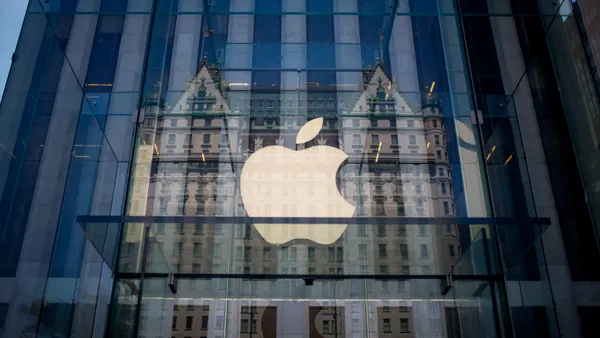Dive Brief:
- Big Four accounting firm KPMG tapped Steve Chase as vice chair of its newly formed AI and Digital Innovation Group, the company announced Friday in a press release.
- The group’s launch comes as major accounting firms have collectively funneled billions into the development of emerging AI solutions while the new technology’s rapid evolution is also sparking growing concerns around cybersecurity and privacy issues.
- “Responsible AI... presents tremendous opportunities,” Paul Knopp, chair and CEO of KPMG’s Management Committee, said in a statement included in the release. The newly-formed group — which gives technology leadership a “critical seat” in the committee, KPMG said — will help to “set a firmwide innovation agenda” around AI, while also “ensuring we have the right safeguards in place to maintain the trust of our stakeholders,” he said.
Dive Insight:
Chase previously led KPMG’s U.S. Consulting Practice and served as a member of its national Advisory Leadership team, according to his LinkedIn profile. With Chase transitioning to the vice chair position, Atif Zaim will take on the role of consulting leader for KPMG Advisory, the company said Friday. Both roles will be effective as of October 1.
As vice chair for the group, Chase — a 19-year alum of the New York-based firm — will “spearhead efforts to invest in and incubate new services and solutions for clients,” among other responsibilities, while also ensuring “KPMG maintains leading governance and responsible use programs,” the company said Friday.
The formation of a dedicated AI and digital innovation group comes just two months after the accounting firm inked an expansion of its partnership with software provider Microsoft to accelerate the use of AI solutions for its clients.
Through the partnership, KPMG will invest $2 billion into AI and cloud services over the next five years, the Wall Street Journal reported — with the expectation that the partnership will bring in more than $12 billion in revenue over that time, the company said.
KPMG is only the latest Big Four firm to make an aggressive push forward regarding AI, especially since the launch of OpenAI’s ChatGPT service last November shone a spotlight on the technology. In April, fellow Big Four firm PwC also announced it would be investing $1 billion into the technology’s development over a five year period, with its own partnership with Microsoft, a key backer of OpenAI.
Ernst & Young as well as Deloitte have made commitments to shell out similar price tags, with EY funneling $1 billion into its audit technology capabilities last June and Deloitte devoting $1.4 billion into its “Project 120” program for technology-enabled employee development last December.
However, as firms and other key financial players move to invest further in AI, questions surrounding how the technology can be used ethically and safely begin to pile up among financial professionals as well as regulators. Establishing guardrails when it comes to the responsible, ethical use of AI at their companies should be an essential concern for CFOs, Michael Kelly, partner and management consulting consultant at EY told CFO Dive in a previous interview.
A July study by EY found that while 65% of CEOs see AI as a driver for business efficiency, the same percentage also fear unintended consequences of the technology — with more work to be done to safeguard its ethical and security risks.
Also in July, a survey by KPMG found that 60% of corporate executives said they expected regulatory concerns to curb their generative AI investment plans — a survey which came after the White House announced that several big AI players including Microsoft and OpenAI had committed to a voluntary set of safeguards regarding the tech that same month, CFO Dive previously reported.
KPMG could not immediately be reached for comment.











